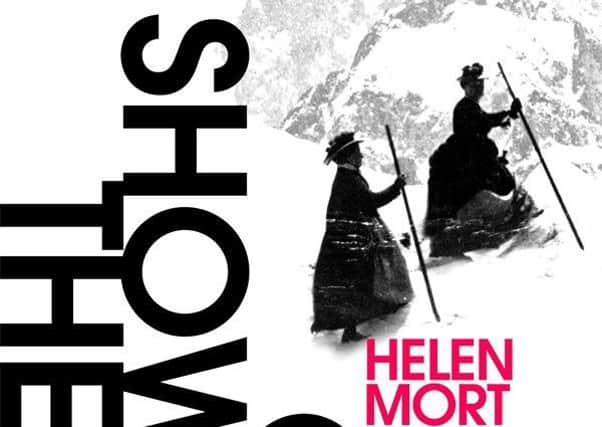Roger Cox: The ascent of women in mountain climbing


No Map Could Show Them by Helen Mort | Chatto & Windus, 70pp, £10
Climbing Days by Dan Richards | Faber & Faber, 392pp, £16.99
Advertisement
Hide AdAdvertisement
Hide AdIf only these two could have met the French alpinist and author Etienne Bruhl. In 1929, he wrote that the 3,482m Aiguille du Grépon had “disappeared” as a consequence of having been climbed by women. “Of course, there are still some rocks standing there,” he went on, “but as a climb it no longer exists. Now that it has been done by two women alone, no self-respecting man can undertake it.”
In her second collection, No Map Could Show Them, Eric Gregory Award-winner Helen Mort uses this idiotic quote as a jumping off point for her wonderfully playful poem “An Easy Day For A Lady”, in which she imagines early female climbers as “magicians of the Alps” who have the power to make the routes they follow vanish: “Turn round / to see the swooping absence / of the face, the undone glaciers, / crevasses closing in on themselves / like flowers at night.”
It’s the perfect response to the chauvinism faced by the earliest female mountaineers. A climber herself, Mort doesn’t get angry at the men who insisted women couldn’t climb as well as they could – instead she takes their mouth-breathing, knuckle-dragging statements and dances elegantly around them, mocking their lumpen stupidity while at the same time effortlessly demonstrating her own superior wit and intellect. Similarly, in “Ode To Bob” she pays tongue-in-cheek tribute to the imaginary male companion that female climbers used to invent in the bad old days, in order to avoid having to endure unsolicited advice from any men they might meet in the hills (“when he has advice / he will not offer it”).
The centrepiece of the collection – and the highlight – is a sequence of poems dedicated to the celebrated British climber Alison Hargreaves, who died descending K2 in 1995. Mort is very good at imagining herself into some of Hargreaves’ climbs; even better at imagining her way into her personal life – the strangeness of her first kiss; the tedium of a lay-off due to injury; what it might have felt like to climb while pregnant. In the already crowded field of mountain literature, this precise, sparky and constantly surprising book more than holds its own.
One of the most notable female mountaineers of the early 20th century was Dorothy Pilley, who, with her husband, the critic IA Richards, made the first ascent of the north ridge of the Dent Blanc in 1928. In Climbing Days, named after Pilley’s own book of the same name, her great-great nephew Dan Richards attempts to get to know her by following in her footsteps – first in Wales, where she helped establish the all-female Pinnacle Club, and then in Switzerland, where he digs deep and manages the Dent Blanche at the second attempt. His deliberately tangential, occasionally somewhat rambling approach to biography is a little hit-and-miss, sometimes throwing up intriguing or unexpected insights, sometimes taking a long time to go nowhere in particular. The book would have benefitted from tighter editing, too – somebody at Faber & Faber should really have thought to insert commas into lists of adjectives, and to cut out some unfortunate repetition (Richards and his father are “both in tears on the bus” on p.251 and then again on p.253). Minor frustrations aside, though, this is a rich and illuminating portrait of a remarkable woman, and like Mort’s Alison Hargreaves poems, it ultimately succeeds in showing us the climber, and not just the climbs.